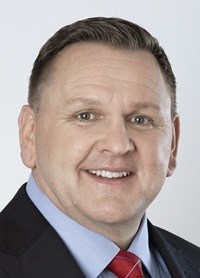
Related
Top stories






More news

















Logistics & Transport
Uganda plans new rail link to Tanzania for mineral export boost








The DHL Global Connectedness Index shows Africa's biggest challenge in terms of realising its trade potential is an underdeveloped infrastructure, but this is slowly improving as several African regions continue to invest large amounts of capital into infrastructure development.
There are a few key challenges facing development - namely:
Underdeveloped infrastructure directly impacts the speed at which goods are moved into, out of and across the region. It also drives up logistics costs, and it is estimated that supply chain costs are up to nine times more expensive in Africa in comparison to other regions in the world.
Government, the private sector and citizens need to work together to create a sustainable and inclusive environment and work on solutions to make it easier to conduct business.
We are expecting 2015 to be a year of growth for the logistics industry on the African continent, largely driven by increased consumer demand and the rapidly developing e-commerce industry.
We also see SMEs as the engine for growth on the continent. There are plenty untapped opportunities which pave the way for SMEs to fulfill the gaps not presently being catered for by larger corporations. Manufacturing, on a large scale, is still somewhat embryonic in Africa and as such, there is a definite opportunity for SMEs.
E-commerce is also a significant growth area as internet penetration increases across the continent. At the DHL 5th annual Global Technology conference this year, experts predicted continued strong growth in the technology sector across Africa, with e-commerce and mobile payments, and technology segments such as mobile phones, growing at a rapid pace. It is predicted that internet usage on mobile phones will increase 20-fold in the next five years in Africa, which is double the rate of growth in the rest of the world.
Yes, they play a big role but it also needs to be a collaborative effort between the public and private sector to work together to ease doing business across borders. We work very closely with government and customs in each country to work together on solutions to make doing business easier.
Governments have also made progress - for example, there are a number of successful trade blocs in place which focus on better connecting the region.
A good example of this is the recent and rapid progress made by the East Africa Community (Kenya, Uganda, Tanzania, Rwanda and Burundi) who are working incredibly hard on developing a number of critical and trade boosting areas. For example, they are working to improve the roads, ports, rail and critically, the customs border environment and have recently introduced a common visa for the region.
Economic Community of West African States (ECOWAS) is a regional group of fifteen West African countries - founded in order to achieve "collective self-sufficiency" for its member states by creating a single large trading bloc through an economic and trading union.
The African Economic Community (AEC) is an organisation of African Union states establishing grounds for mutual economic development among the majority of African states. The stated goals of the organisation include the creation of free trade areas, customs unions, a single market, a central bank, and a common currency (African Monetary Union) thus establishing an economic and monetary union.
Obvious advantages of trade blocs are:
DHL has been a big player within the African continent, not only with service delivery and logistics, but with dedicated development initiatives for decades now. Since the theme of the World Economic Forum is 'Then and Now', how has the role of DHL changed from the time it initially entered the African market to now? And, how has DHL reimagined the future of Africa?
DHL set up in Africa in 1978, and today we are present in every African country and territory. With 37 years of express logistics experience on the continent and our extensive footprint in Africa, we are uniquely positioned to service Africa and its growing industries.
A key focus for DHL Express sub-Saharan Africa in 2015 is to further strengthen connectivity, both within the continent and globally. Africa offers unlimited growth opportunities and we aim to drive this growth with strategic investments and programs that will make the global market more accessible. We are committed to connecting Africa to the world, and the world to Africa.
Awareness of the need for a sustainable approach in business has increased. It has gone beyond merely satisfying a customers' needs in a profitable way - businesses need to ensure that they integrate sustainability into their operations and strategies. Business success and environmental protection should be interlinked.
